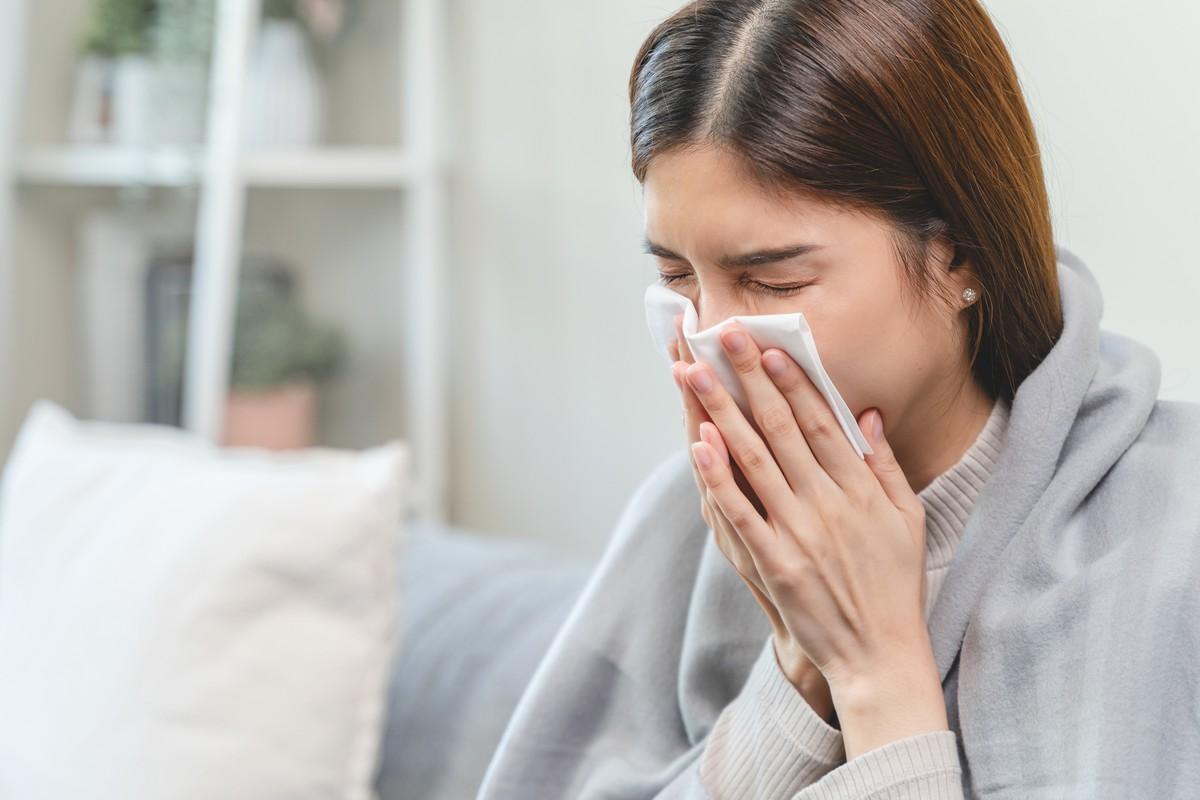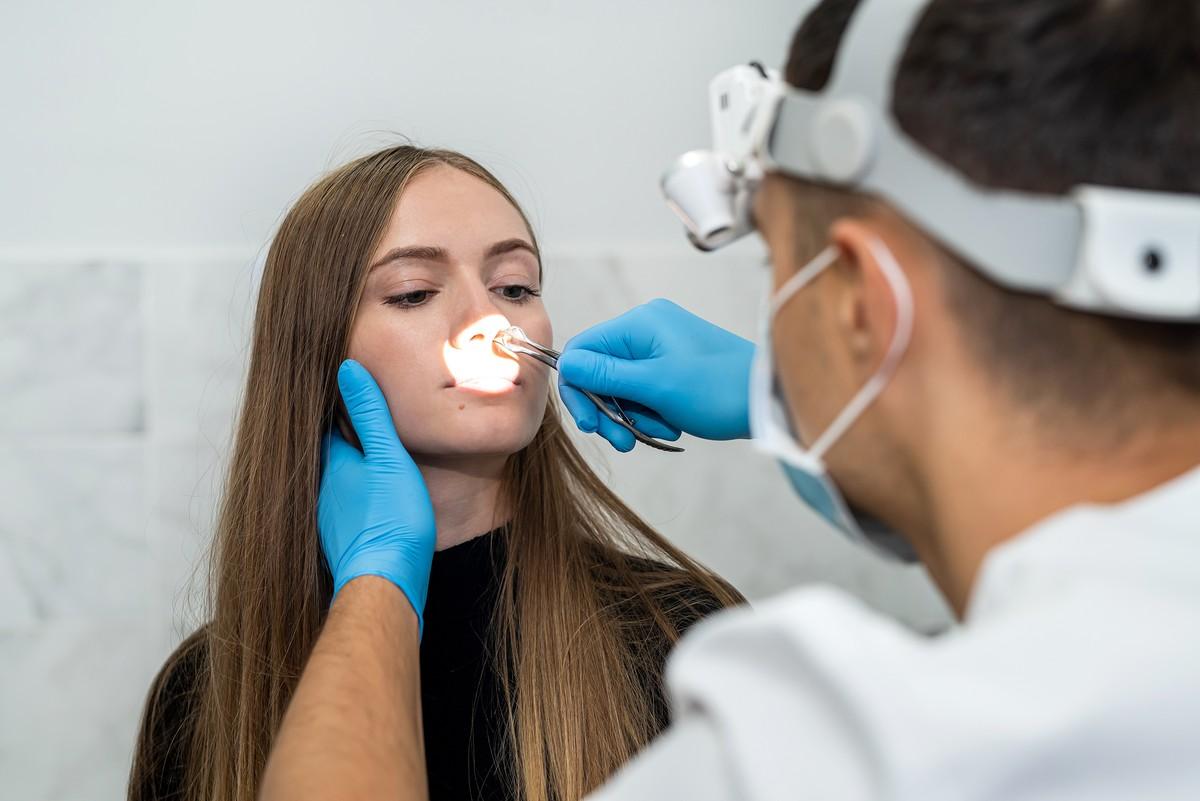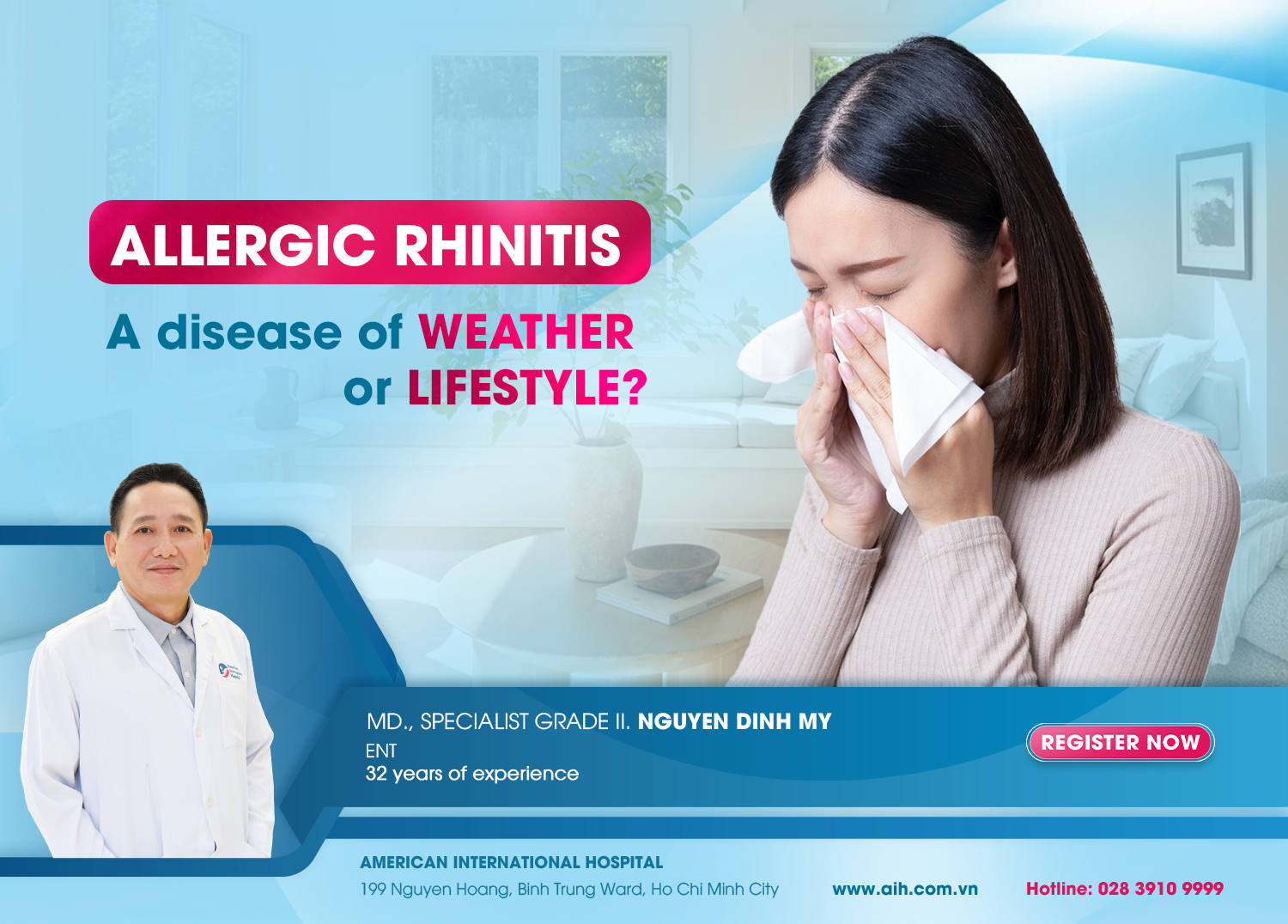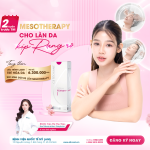Notification
Please fill in the information below
Urgent
ALLERGIC RHINITIS: A DISEASE OF WEATHER OR LIFESTYLE?
According to Dr. Nguyen Dinh My, specialist level II doctor, Head of the Ear - Nose - Throat Department, American International Hospital (AIH), allergic rhinitis is becoming increasingly common, especially in urban areas – where air pollution and modern lifestyles significantly affect health. Not only caused by changing weather, but the disease is also closely related to the living environment and daily activities. The combination of climatic factors and the living environment has made allergic rhinitis difficult to control and prone to recurrence.
Let's learn more with American International Hospital (AIH) about the causes, diagnosis, treatment, and effective prevention of allergic rhinitis – a "familiar" disease that cannot be underestimated in today's life.
What is allergic rhinitis?
Allergic rhinitis is a condition where the nasal mucous membrane becomes inflamed due to an excessive immune system reaction to allergens such as pollen, dust mites, pet hair, mold, cigarette smoke, chemicals, and even changes in air temperature and humidity.
While generally not dangerous, it significantly impacts quality of life. Typical symptoms include:
Recurrent sneezing
Nasal congestion, clear rhinorrhea
Nasal itching, ocular itching, lacrimation
Headache, fatigue, and insomnia.

According to Dr. My, climate and environment are among the leading causes of disease onset. Changes in temperature, humidity, seasonal winds, or transitional periods between seasons can easily increase the concentration of allergens in the air:
Dry and windy seasons: increase in pollen, fine dust, and other airborne allergens.
Rainy seasons or humid climates: create favorable conditions for the rapid proliferation of mold and dust mites.
Urban polluted environments: The combined impact of vehicle exhaust, industrial emissions, and household cleaning agents contributes to nasal irritation.
In Vietnam, a country with high humidity year-round, people are more susceptible to indoor allergens such as dust mites and mold.
Besides weather factors, the current urban lifestyle contributes to the increase in allergic rhinitis cases due to:
Enclosed spaces and frequent air conditioner use lead to stagnant indoor air, lacking exchange with the outside environment, creating conditions for fine dust and microorganisms to thrive.
Late nights, lack of sleep, and prolonged stress disrupt the immune system, increasing the risk of allergies.
A diet lacking green vegetables, omega-3, and vitamin D, combined with a sedentary lifestyle, makes the body more sensitive to external factors.
Frequent exposure to chemicals, cosmetics, and strong cleaning agents also causes irritation to the nasal mucous membranes, especially in young children and individuals with an allergic constitution.

How is allergic rhinitis diagnosed and treated?
The diagnosis of allergic rhinitis primarily relies on clinical symptoms and the patient's allergy history. The diagnosis of allergic rhinitis requires a combination of:
Taking a personal & family allergy history
Clinical examination of the nose and throat
Skin prick test or specific IgE quantification in the blood to identify allergens
Rhinoscopy when accompanying rhinosinusitis is suspected.
Allergic rhinitis treatment
The treatment of allergic rhinitis needs to be personalized based on the severity of symptoms, frequency of recurrence, and the pathogenic allergens. The goal of treatment is not only to alleviate immediate symptoms but also to achieve long-term control, prevent complications, and improve the patient's quality of life.
Treatment regimens for allergic rhinitis typically include the following groups of measures:
Allergen avoidance: This is a primary treatment principle but can be difficult to implement completely
New-generation antihistamines: These helps reduce itching, sneezing, and runny nose with less drowsiness
Intranasal steroids: These are the first-line choice for long-term symptom control, high efficacy and fewer side effects when used at the correct dosage.
Specific immunotherapy: Involves injecting or administering sublingually small doses of allergens over a long period, which helps to "train" the immune system to react less to the allergen.
Supportive care: Nasal irrigation with saline solution, using air purifiers indoors, and maintaining appropriate humidity levels.

Proactive adaptation – The key to control disease
While allergic rhinitis cannot be completely cured, it can be well-controlled if:
Maintain a healthy lifestyle and scientific diet
Clean your house regularly and limit dust-collecting items
Avoid exposure to cigarette smoke and artificial fragrances
Wear a mask when going out or working in a polluted environment
Have regular check-ups with an Ear – Nose – Throat specialist to monitor the progression.
Allergic rhinitis is a "modern disease," influenced by both the natural environment (weather, climate) and profoundly affected by the artificial environment (lifestyle, daily activities, urbanization).
The important thing is not just to "escape" the disease, but to understand it correctly to help with early prevention and long-term control. Balancing healthcare, improving living environments, and adopting a scientific lifestyle will help patients live healthily, experience fewer symptoms, and avoid unnecessary complications.

The Department of Ear, Nose, and Throat – American International Hospital (AIH) brings together a team of highly experienced and specialized doctors in the diagnosis and treatment of ear, nose, and throat conditions – from common issues to complex cases requiring specialized intervention. With a modern equipment system and internationally standardized examination and procedure rooms, the ENT Department provides comprehensive services: diagnostic endoscopy, treatment of otitis media, rhinosinusitis, tonsillitis, hearing disorders, sleep apnea, and minimally invasive ENT surgery. We are committed to delivering high-quality, safe, and effective medical care for both adults and children, in a modern and friendly treatment environment.
Search
Latest News
Our Doctor






































































Leave a comment